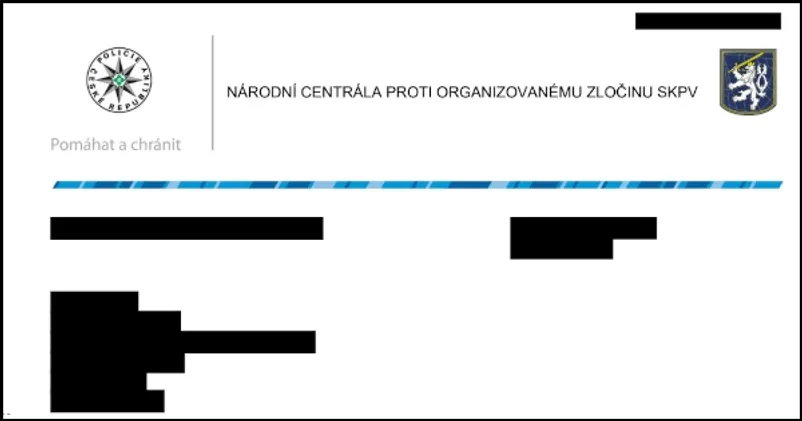The letter from the National Center for Combating Organized Crime (NCOZ) contains numerous claims that are completely unrelated to the legislation being voted on and that we consider inaccurate or even entirely incorrect. We would like to respond to them. The fact that the letter is full of mistakes and myths is particularly striking given that the Czech state administration has been actively preparing for four years to implement the strict EU rules under the MiCA regulation.
The author repeatedly asserts that the approval of the proposed measures would somehow worsen the ability to use cryptocurrencies for criminal activities, whereas the opposite is true. The time and value test is entirely unrelated to this issue. However, the legislative package it is part of (MiCA) will help draw an even clearer line between the gray and white economies. Entities providing crypto asset services (so-called CASPs) will now have the same obligations as the banking sector. It is difficult to imagine how the adoption of such legislation could in any way worsen the potential use of cryptocurrencies for criminal activities.
A fundamental misunderstanding, reflected throughout the text, is that it is not about giving crypto-assets a tax advantage over traditional investments, but about unifying the approach to their regulation and taxation with other investment instruments. Another issue is that four out of the eight points mentioned in the letter have nothing to do with the time test at all. Nevertheless, for the sake of completeness, we will respond to them as well.
It is evident from the letter that the author does not understand the difference between a tax exemption and the introduction of a time and value test. While a tax exemption means that certain income is not taxed at all, the time and value test introduces rules under which gains from the sale of crypto assets are taxed based on the holding period and transaction value—something entirely common, for example, with stocks. It is clear that the author likely has not even read the proposed amendment, as their arguments completely miss the essence of the discussed legislation.
Unfortunately, the NCOZ letter does not address the relevant legislation but instead broadly condemns cryptocurrencies and needlessly spreads fear about their supposed (nonexistent) preferential treatment, without acknowledging current global trends and innovations. The transparency of blockchain, the introduction of regulations such as MiCA, and the creation of spot Bitcoin ETFs demonstrate that cryptocurrencies are increasingly recognized as investment assets. The Czech Republic, known as a crypto powerhouse, should not fall behind. Furthermore, Germany has applied a time test to crypto assets since 2018, proving that this is a standard element of a modern tax system.
Now, addressing the individual points:
1. Loss of Tax Revenue
The proposed time and value test does not, in any way, favor crypto assets over traditional investments, as mistakenly stated in the text. It is about aligning the rules that already apply to stocks, securities, and other financial assets. The tax change applies to the long-term holding of crypto assets, which supports market stability and long-term investment while reducing the motivation for short-term speculation.
2. Encouragement of Tax Evasion
Cryptocurrencies are often based on blockchain technology, which provides a public and immutable record of all transactions. This makes them difficult to conceal and, in many cases, enables tracking. Regulations such as MiCA and DAC8 significantly enhance oversight of crypto assets and, on the contrary, limit opportunities for tax evasion. Creating a predictable and transparent environment in Europe will ensure that capital and the crypto industry remain here. Consumers will be able to use European (and hopefully Czech) companies, with much higher levels of protection and security.
3. Risk of Money Laundering
This argument is not relevant to the time test, as introducing a three-year time test does not pose a risk of money laundering. This measure is focused on long-term asset holding, not short-term transactions. Nevertheless, the changes introduced by MiCA, the travel rule, and other European regulations significantly reduce the risk of cryptocurrency misuse for such purposes. All exchanges in the EU, of course, remain subject to AML and KYC regulations.
4. Inequality in the Tax System
The time test for cryptocurrencies is not an unfair advantage. It aligns the rules with those applied to stocks and other investment instruments, as mentioned in point #1. This proposal creates equal and transparent conditions for investors, thereby contributing to a fairer tax system.
5. Financing of Illegal Activities
This point is not relevant to the decision on the time test, as it focuses on general issues related to illegal activities. The time test encourages long-term asset holding, which contradicts the typically short-term nature of illegal transactions. It is important to emphasize that cryptocurrencies are not entirely anonymous, and transactions can be traced back. Unlike cash, which is entirely anonymous, cryptocurrencies leave a digital footprint, making them a less attractive means for criminal operations.
